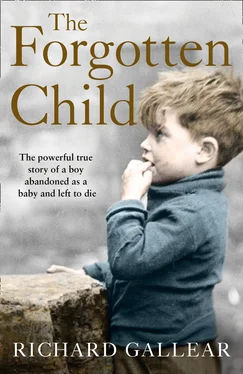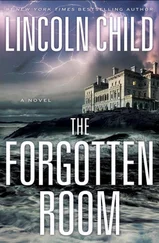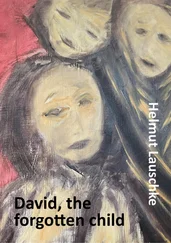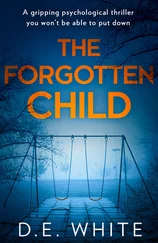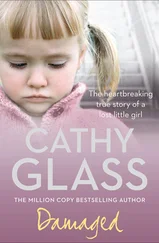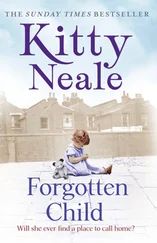When I wasn’t running around or climbing trees, I used to take myself off for a walk around the outside of the building. We were all friends at Field House, but from a very early age, I enjoyed being on my own as well. I loved to see what was happening in the large, walled vegetable garden behind the house. All our vegetables were grown there and I enjoyed watching them day by day as they came up out of the ground and revealed their produce. To me, the whole process seemed like magic! We grew our own fruits too. Often in the summer we’d have raspberries and strawberries and in the autumn the cooks made us delicious apple crumbles. Blackberries grew abundantly in the hedgerows lining our drive, so we would each be given a little basket to pick some – under supervision, of course. I remember eating most of mine, but some must have been taken back to the kitchen because they were often added to the crumbles.
All the year round, the kitchen’s delicious smells lured me in, again and again. Often the best times were when the cooks were baking cakes. I have to admit that every now and then, when I thought they weren’t looking, I would pop in and pinch an iced bun or a slice of Victoria sandwich from a plate – I loved that. The cooks never seemed to mind. The head cook was a large and jolly woman. In fact, all the staff seemed jolly to me. Whoever appointed the people to work at Field House, with children from all different backgrounds and circumstances, they chose very well. If any of us had a problem, from a scraped knee to a crisis of confidence or a terrifying nightmare, there was always somebody on hand to comfort us.
There were several housemothers and I think we each had one special one who would take particular care of us and encourage us to do the right things and to play well with each other. I can remember my housemother as if I saw her yesterday – very slim, with straight dark hair and a kind, smiley face. She was very bubbly and I loved her for that. I only wish I could remember her name. I suppose each housemother must have had responsibility for two or three children at a time and sometimes, especially when the new babies came in, I think I may have been a little jealous of the attention she paid them. However, as far as I can remember, I was quite an easy-going child and always happy to make my own amusements.
Sometimes, at night, I remember waking up to find I had wet the bed. This wasn’t unusual at Field House, but it did upset me and I couldn’t help crying. I don’t know how they knew, but my housemother, or one of the others, would always come and change the sheets and calm me down with soothing whispers and a cuddle until I fell asleep again.
The matron was different. We all had to call her ‘Matron’ and so did all the staff – it wasn’t Joan, or Mrs Smith, or anything like that, it always had to be ‘Matron’. A tall woman, she was quite thin and stern. I remember she did sometimes have a kindly face, but most of the time she was strict and everyone was a little afraid of her. She was that old-fashioned sort of matron they used to have on hospital wards to make sure that everything was clean and tidy. Nothing got past our matron! We were all wary of her – nobody ever said ‘boo’ to Matron. I think the staff were all wary of her too – they were constantly cleaning. As soon as that little green car came up the drive, crunching the gravel, and drew up outside, I noticed the great flurry as everybody started doing things!
While all the housemothers were kind to us, they sometimes had to be quite strict as well, to make sure we did the right things and followed the routines as much as possible. If we were asked to line up on the front lawn, that’s what we did. And if it was time for lunch or an afternoon lemonade, we had to stop what we were doing and come straight away. I don’t remember a bell – the staff just came out and found us around the grounds and gathered us in.
Although the house was big, we only really used the ground floor. In all, there were about 20 to 25 children, plus the babies, who were in a separate part of the house. There were at least as many staff as there were children. I can still remember the uniforms the housemothers wore: striped dresses with belts round their waists and pure white tabards slipped over the top.
Although the doctor usually came to do vaccinations and check-ups on our progress, writing down his findings on special forms, there were other times when he was called out to someone who was ill. We all had the usual illnesses, being together so much and passing them on to each other. I know from my medical records that I had whooping cough when I was two and I remember the doctor coming to see me when I had measles, aged three and a half. But the worst thing I ever had was salmonella food poisoning when I was about three, because I had to be taken to Hagley Green Hospital in the doctor’s car. I must have been very ill with it as I was kept in for about five weeks.
Throughout the summer, the staff would sometimes organise games for us, like taking turns hitting the ball. But I never joined in those games for very long as I lost interest in balls and bats. Instead, I would go off to a little den I’d made and study the insects that hid under the logs.
I wasn’t really interested in group games. For me the biggest entertainment was the gardens, the beautiful place we lived and the countryside around it – I just loved playing there. I looked at the buttercups and how they were made; I watched the butterflies flitting about and settling, so that I could study the patterns on their wings.
One day, my housemother came over and sat on the grass with me, watching the bees buzzing over a clump of lavender. ‘I like bees,’ she said. ‘They are good for the flowers, taking pollen from one to another and back to their hives, where they make honey.’
‘Really?’ I asked in wonder. ‘Do the bees make our honey that we sometimes have at teatime?’
‘Yes, that’s right,’ she nodded with a smile.
‘But they sting, don’t they?’ I continued. ‘David had a bee sting.’
‘Not usually, only if they feel threatened. David was trying to hit them with his bat. Bees only sting if they think we are trying to hurt them, but wasps are the ones you want to look out for. They can give you a nasty sting, so best to stay clear of them.’
‘How do I know if it’s a wasp?’
As my housemother explained the differences, I took it all in and never forgot it. From an early age I was fascinated by nature and loved to learn about it.
As well as organised games and a large amount of space to build dens and trees to climb, we had swings and small climbing frames, which we took turns on.
I don’t remember having any best friends at Field House because we were all friends together – I liked everybody and none of them were horrible or selfish, so we just got on. We missed the older ones when they had to leave, but new children came in to replace them and it was all part of the pattern of our lives. We were all different ages under five, so it was like a big family. Yes, that’s exactly the right word: it was the ethos of the place, we all felt loved and looked after. We took it for granted, cocooned as we were from the outside world, not knowing that children’s homes could be any different.
Of course, children were occasionally naughty and they would have their legs slapped. If they were very naughty, they would have to go and see Matron. That induced the fear, oh yes! Just the thought of it put them off doing anything naughty again.
I wasn’t immune. Sometimes I did get into minor trouble, possibly for over-eating – I did a lot of that! Or maybe I didn’t come when I was called. I have to admit that there were occasions when I ignored the call because I wanted a bit of extra time – I suppose all children do that. It was usually when I was in the garden. I used to love it so much that I was often in a dream, but when they called us, we had to toe the line, we had to go in. If they wanted to wash me down, there was no messing about: it was soap and water time and that was that.
Читать дальше
